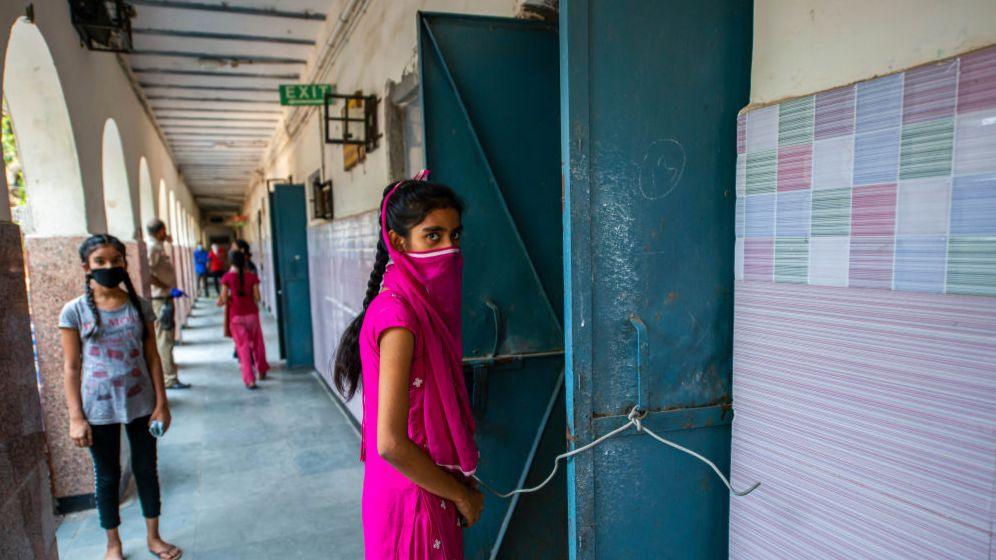India coronavirus: How do quarantine rules differ in major cities?
- Published
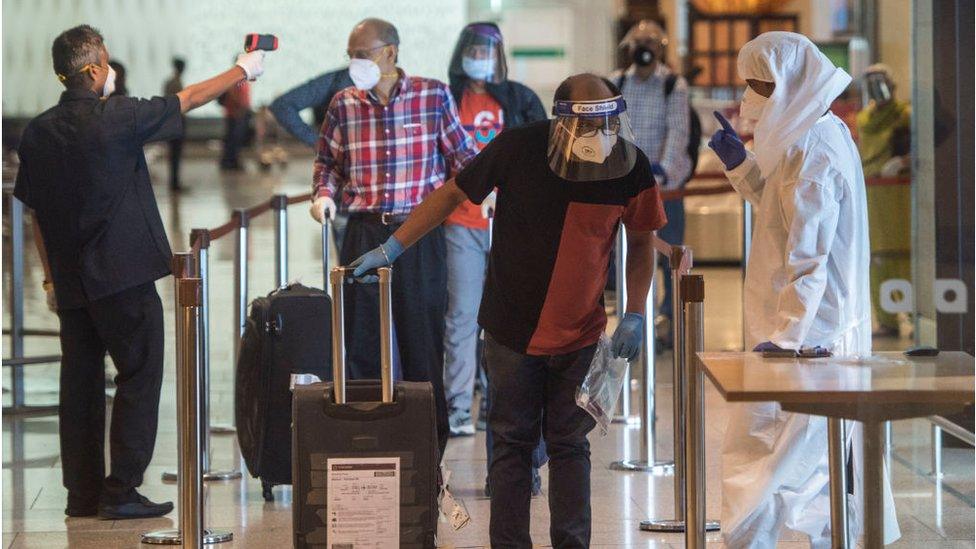
States in India have chosen to set their own travel rules
Nearly a month after India resumed domestic flights, there is still some confusion about travel guidelines.
States have chosen to set their own travel advisories, constantly changing quarantine rules for passengers.
While most have announced institutional quarantine for symptomatic travellers, some have mandated an additional self-isolation rule.
Here's a look at some of the state quarantine guidelines for incoming passengers
Delhi
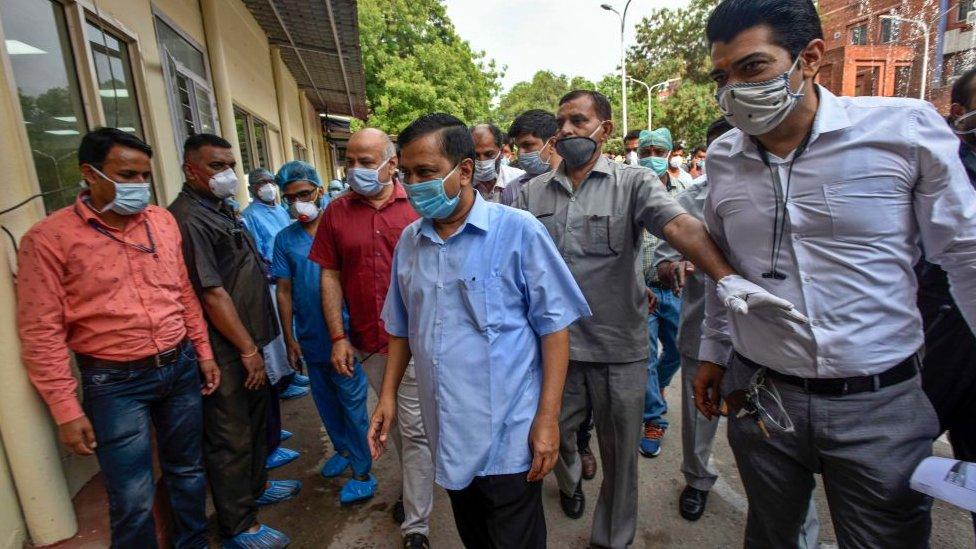
Delhi has become India's biggest Covid-19 hotspot
With more than 83,000 confirmed cases of Covid-19, India's capital has become the country's biggest hotspot.
All asymptomatic passengers who enter Delhi will need to home quarantine or isolate themselves for a week.
They will need to self-monitor their health, and if they develop Covid-19 symptoms such as cough or fever, they should report to health officials.
Incoming travellers showing symptoms of the disease will be isolated and taken to a health facility for a check up. If they exhibit mild to severe symptoms, they will be admitted to a Covid-19 facility.
Persons with mild symptoms will be given the choice of going to a Covid-19 care centre or self-isolation at home.
Aargoya Setu, India's Covid-19 contact tracing app, has been made mandatory for all passengers arriving in Delhi.
International passengers will have to undergo mandatory testing and seven days of institutional quarantine.
Asymptomatic passengers will be allowed to go home with medical advice to isolate for a week.
Mumbai
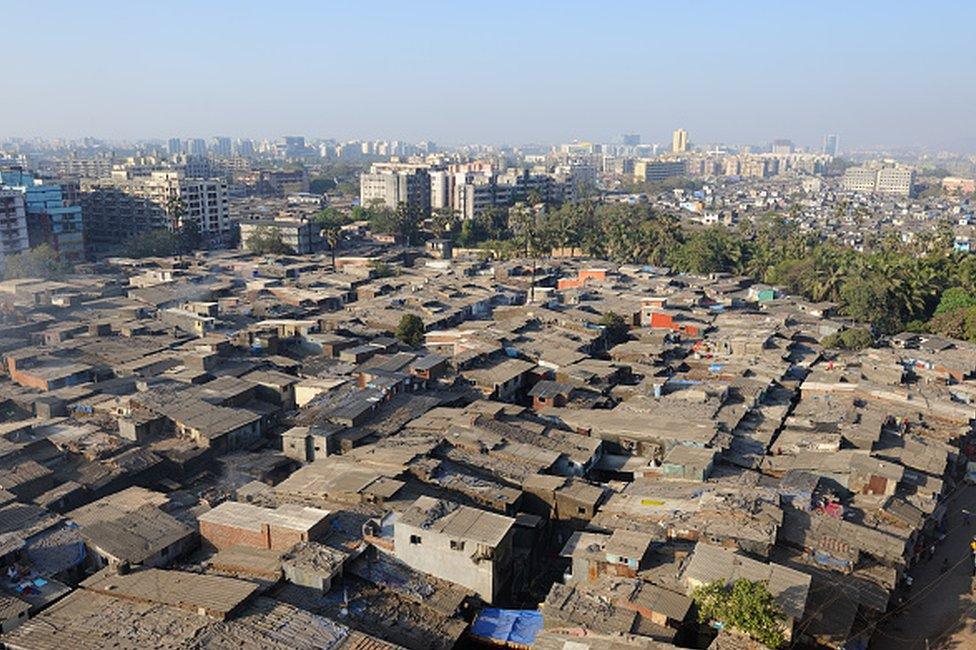
More than 650,000 people live in Asia's largest slum, Dharavi in Mumbai
India's financial capital, Mumbai, has recorded nearly 76,000 cases of Covid-19, and more than 4,300 deaths.
Asymptomatic passengers arriving here will need to stay at home for two weeks. Symptomatic passengers will be moved to institutional quarantine.
Incoming passengers will be stamped on the hand to indicate they are meant to be in isolation.
Passengers coming to the city for less than a week and showing no symptoms will not need to quarantine.
The tracing app is mandatory for all incoming passengers.
Bangalore
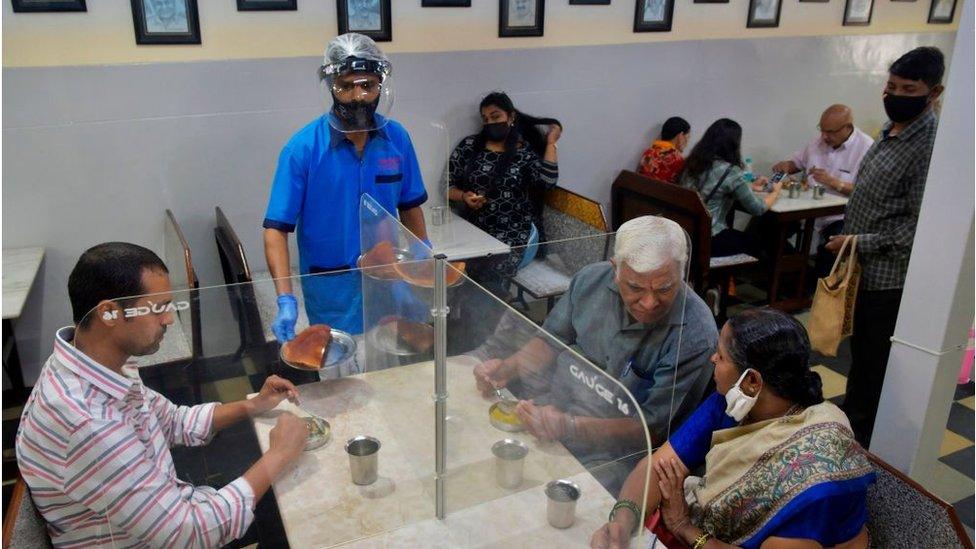
All arrivals from other states to Bangalore, will be placed under a 14-day home isolation period.
Bangalore has recorded more than 2,600 cases and 89 deaths from the infection so far.
Starting 5 July, the government will impose a complete lockdown on Sundays to curb the spread of the virus.
Passengers arriving from the hotspot state of Maharashtra will have to stay under institutional quarantine for seven days followed by two weeks of self isolation at home.
In the latest revision of the rules for people arriving from Delhi and Chennai, the three-day institutional quarantine which was mandatory earlier, has been waived off.
All arrivals from other states will be placed under a 14-day home isolation period.
Before arriving, passengers need to register on the Seva Sindhu website, the state's Covid-19 tracking and monitoring website.
Kolkata
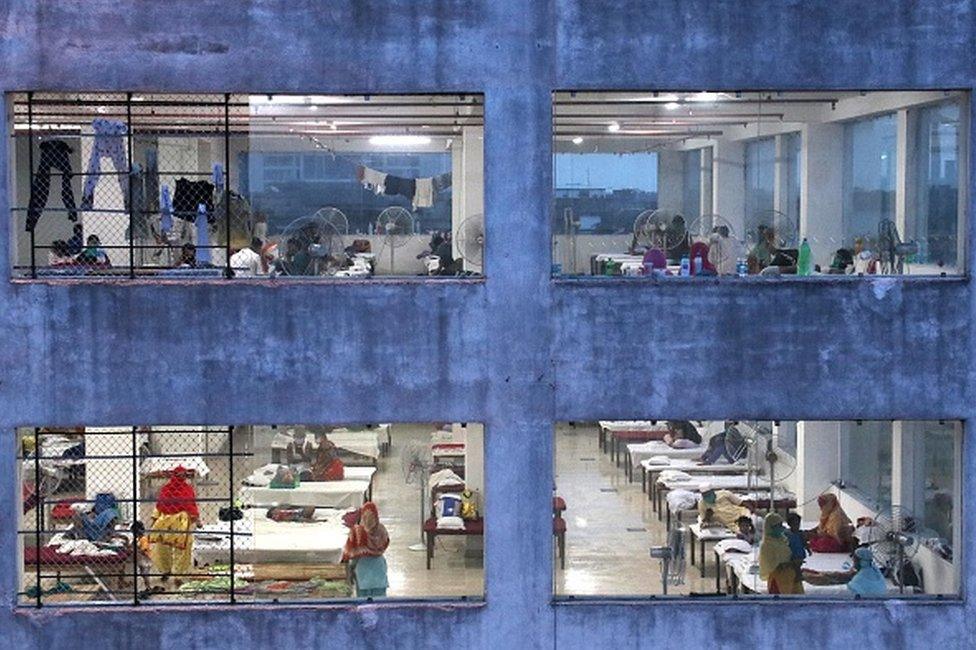
A Covid-19 isolation ward in India
Passengers arriving here from five hotspot states - Maharashtra, Delhi, Gujarat, Madhya Pradesh and Tamil Nadu- will be taken to institutional quarantine for 14 days.
All asymptomatic passengers arriving from other states will be medically screened and instructed a two-week-long strict home quarantine.
All passengers will have to fill out a declaration form in the local 'Sadhane App', for further tracking.
Hyderabad
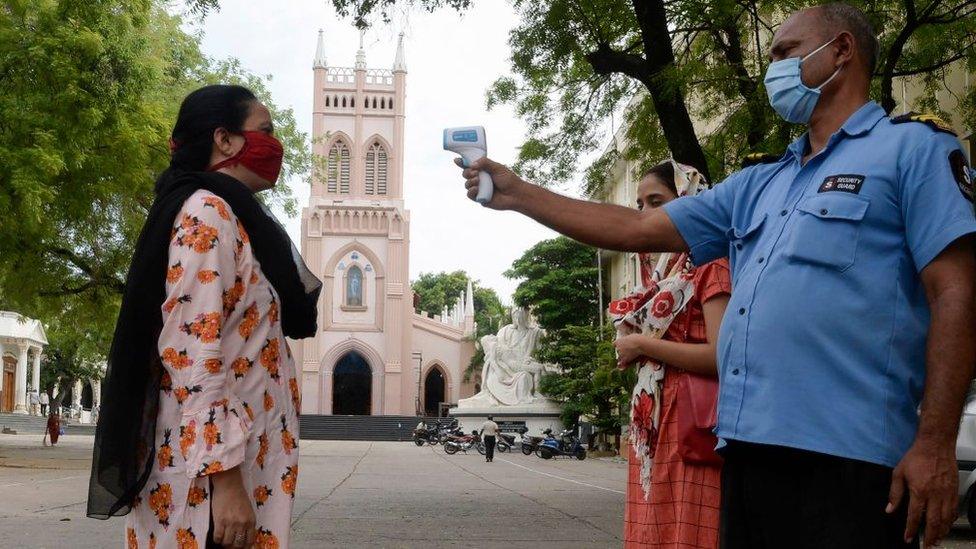
Telangana has reported the country's lowest tests per million.
Following an uptick in cases, Hyderabad is planning a 15-day lockdown.
The local government has not imposed any quarantine period for asymptomatic passengers arriving in Hyderabad.
Those showing symptoms of Covid-19 will be sent to institutional quarantine.
Chennai
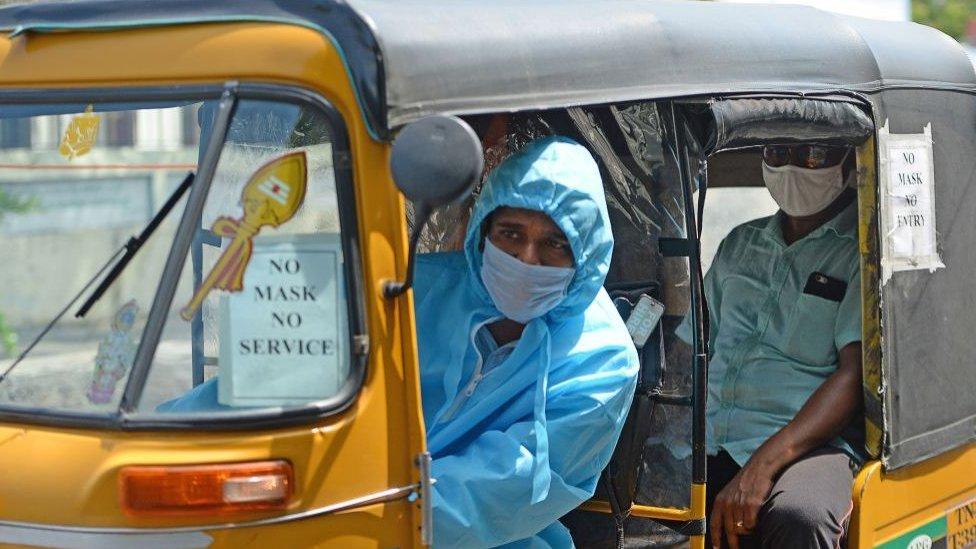
Chennai accounts for the majority of cases in Tamil Nadu
A Covid-19 test is mandatory for all passengers arriving in the city.
Asymptomatic traveller from hotspots states like Maharashtra, Delhi and Gujarat will be sent to seven-day institutional quarantine followed by a week of home isolation.
For passengers from other states, a 14-day home isolation period is advised.
Further, all incoming passengers have to apply for a 'TN e-pass' approved by the government's Covid-19 website.
- Published19 June 2020
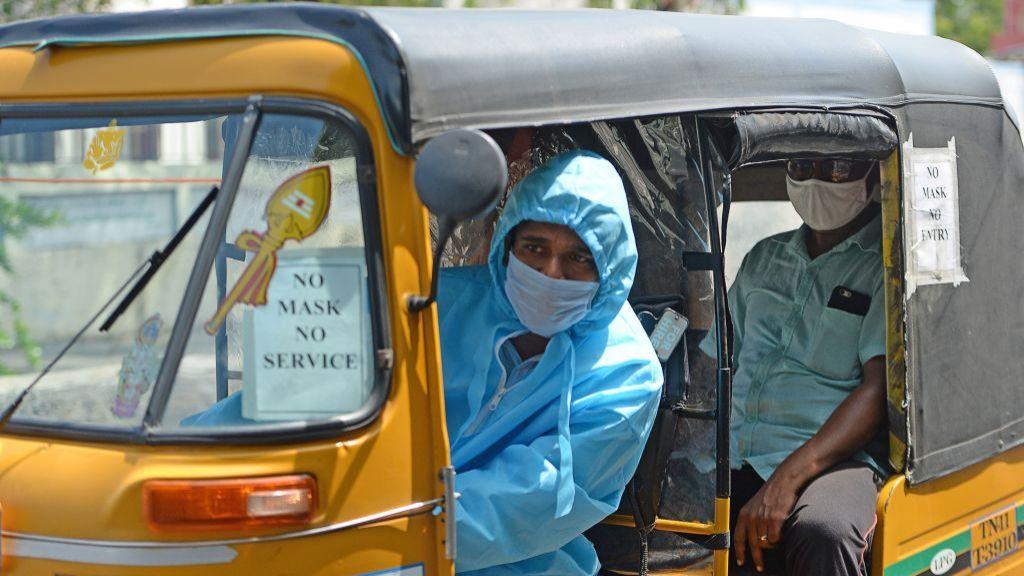
- Published22 June 2020
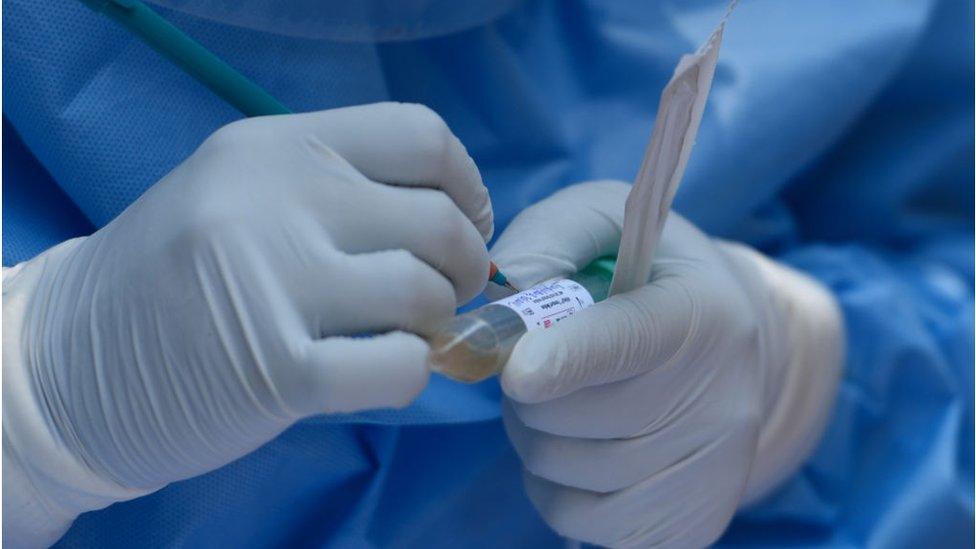
- Published28 June 2020
